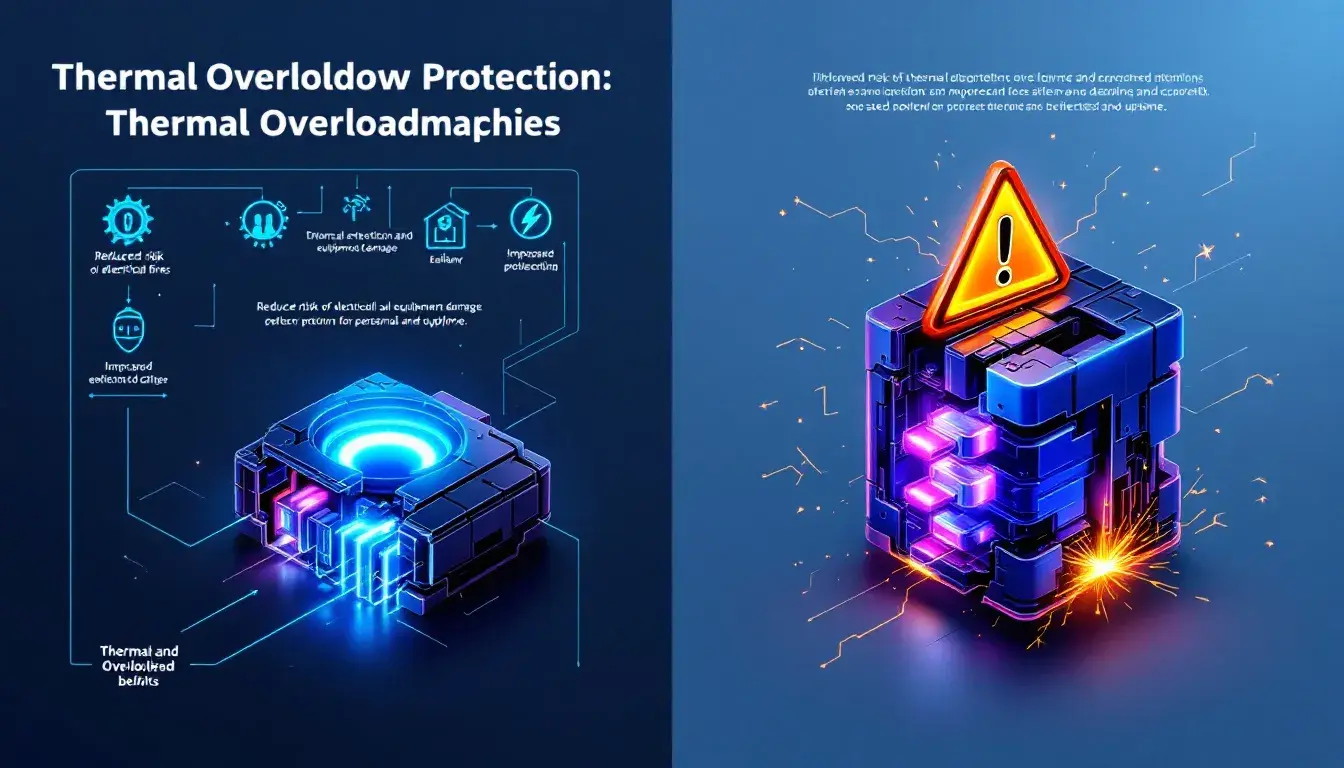What Is the Advantage of Miniature Circuit Breaker?
Table of Contents
ToggleAn MCB is used in a number of different electrical applications. It is used in homes and businesses to protect electrical equipment from short circuit faults and can be found in a variety of sizes and shapes.
These specialized devices can be grouped by type, according to their specific application. Some types are designed to protect against only one or two circuits, while others are designed to protect against all kinds of circuits.
An MCB is usually classified by type and voltage. A small circuit breaker can be either type A or type B. The former is designed to handle lower currents, while the latter is designed to handle high currents. These breakers can be used in homes, as well as commercial applications. However, the type C MCBs are best suited for high inductive loads. If you’re looking for a breaker for your business, you should make sure it’s rated for your use.
There are many advantages of using a miniature circuit breaker. If you want to know more about this device, follow this article.
What Is A Miniature Circuit Breaker?
The name MCB comes from the fact that it automatically protects an electrical circuit from damage. MCB stands for miniature circuit breaker. As the name goes, it is a small or miniature circuit breaker that helps to protect against overcurrent.
This device senses excess current and breaks the circuit immediately. This safety feature is very important in industrial and commercial environments, where a small number of fuses can cause a large fire. These devices are also easy to install, run, and maintain. Using these devices is much simpler than using fuses, and they are generally used in commercial and industrial applications.
These devices are used in places where there is a high current and low voltage. They trip instantaneously when they detect the fault. They can be used in industrial and commercial settings where the danger of electrocution is minimal. So, it’s worth checking out whether you’ll need one in your environment.
A miniature circuit breaker uses a thermal or magnetic trip mechanism. A thermal breaker trips instantly when a fault is detected. A miniature circuit breaker has a three-position switch. The tripping mechanism is actuated by a fault current that overwhelms the spring force. Most miniature circuit breakers use a combination of thermal and magnetic tripping mechanisms. In a thermal tripping device, an arc is forced into the arc splitter plates via an arc runner.
How Does A Miniature Circuit Breaker Work?
A miniature circuit breaker, or MCB, is a device that protects electrical equipment by interrupting the flow of current. These devices can be single-pole, two-pole, or even four-pole. Two-pole MCBs are joined together, and three-pole MCBs are knobs that are combined. During an overload, the current that is flowing through an MCB exceeds its rated limit. In this situation, the bimetallic strip in the MCB deflects, and a short circuit is created.
A miniature circuit breaker protects a load by opening contacts that are insulated from the main supply. The contacts of an MCB close automatically when an overcurrent passes through them. They can also be manually activated by a handle. Both thermal and magnetic operation have their benefits and disadvantages. Generally, industrial-grade MCBs are more expensive than domestic-grade MCBs.
The components of a miniature circuit breaker are a bimetallic strip and a latch arrangement. When the breaker is turned ON, the latch holds the contacts closed. When the current exceeds the limit, the bimetallic strip is heated and bends. This triggers the breaker’s plunger arrangement, which knocks down the latch and opens the contacts. Hence, if the power fails, the MCB will open the contacts.
Advantages of Miniature Circuit Breaker
An MCB is a safety device that breaks the circuit when a fault occurs, preventing the flow of excess or high current from damaging electrical appliances. Its design is also more convenient than a fuse, as the faulty device can be reset and the supply resumed immediately.
- Simple and Easy to Use: Miniature circuit breaker is more sophisticated than a fuse, which must be replaced whenever it trips or overheats. It works on a new, more efficient mechanism that eliminates the need for fuses. The thermal tripping effect, which works with a bimetallic strip, causes the trip lever to be displaced, causing the trip coil to strike the trip lever. This action opens the contacts in the MCB.
- Reliable and Convenient: The MCB is designed to operate at a rated frequency. Its rated current and ultimate breaking capacity are defined by trip curves. The rated and tripped currents of an MCB are controlled by ambient temperature, which affects the time it takes for the device to trip. These are two of the main benefits of an MCB. Because of their ability to work in harsh environments, MCBs are a safe, reliable, and convenient alternative to fuses.
- Improved Safety: The MCB has improved operational safety. It can handle voltage fluctuations and can be remotely switched on and off. It is also compatible with large inductive loads, such as motors and electric dryers. The MCB is a great choice for homes and businesses with high electrical usage. The MCB is more sensitive than a fuse, making it a better choice in certain applications. An MCB is a safer alternative to a fuse.
- Less Replacement Cost: When compared to a fuse, MCBs can also be cheaper. In some cases, the MCB can cost less than a conventional circuit breaker. The MCB will cost more, but it is well worth the investment as you can reuse it without changing the device.
- Can Be Used Anywhere: Another advantage is that it can be used anywhere, including on the floor. These breakers are more resistant to temperature changes than their counterparts and will prevent a fire from breaking out.
- Sensitive to Current: The MCB has several advantages over a fuse. It is more sensitive to current than a fuse and breaks the circuit when it detects an abnormality. It is also a good choice for homes and businesses that are concerned with electrical safety. These benefits make it the safer option for many people. If you’re looking for a replacement for a blown a fuse, it may be a good idea to use an MCB instead.
- Overload protection: Using an MCB has many advantages over a fuse. An MCB is designed to protect electrical equipment, human life and property from a fire. It breaks the circuit when an overload occurs, while a fuse will break the circuit when a short has occurred. A fuse is reusable, but it will need to be replaced after the first failure. It is a safety device.
Tel: +86-577-88671000
E-mail: ceo@tosun.com
Skype: tosunelectric
Wechat: +86-139 6881 9286
WhatsApp: +86-139 0587 7291
Address: Room No.1001 Wenzhou Fortune Center,Station Road, Wenzhou, China
REQUEST A QUOTE
WhatsApp us
 : +86-139 0587 7291
: +86-139 0587 7291 English
English Español
Español Русский
Русский Français
Français العربية
العربية Português do Brasil
Português do Brasil Українська
Українська Türkçe
Türkçe Polski
Polski Nederlands
Nederlands Italiano
Italiano Bahasa Indonesia
Bahasa Indonesia हिन्दी
हिन्दी اردو
اردو አማርኛ
አማርኛ Հայերեն
Հայերեն ไทย
ไทย Монгол
Монгол فارسی
فارسی Shqip
Shqip Ελληνικά
Ελληνικά


